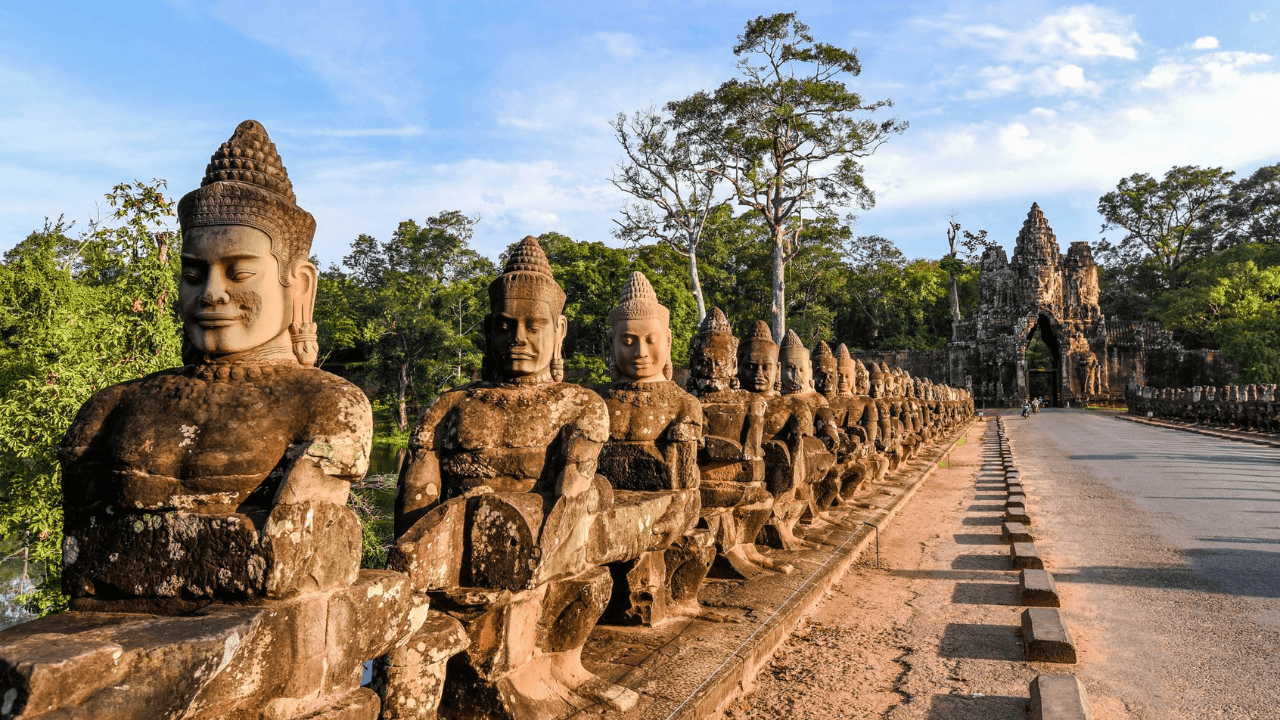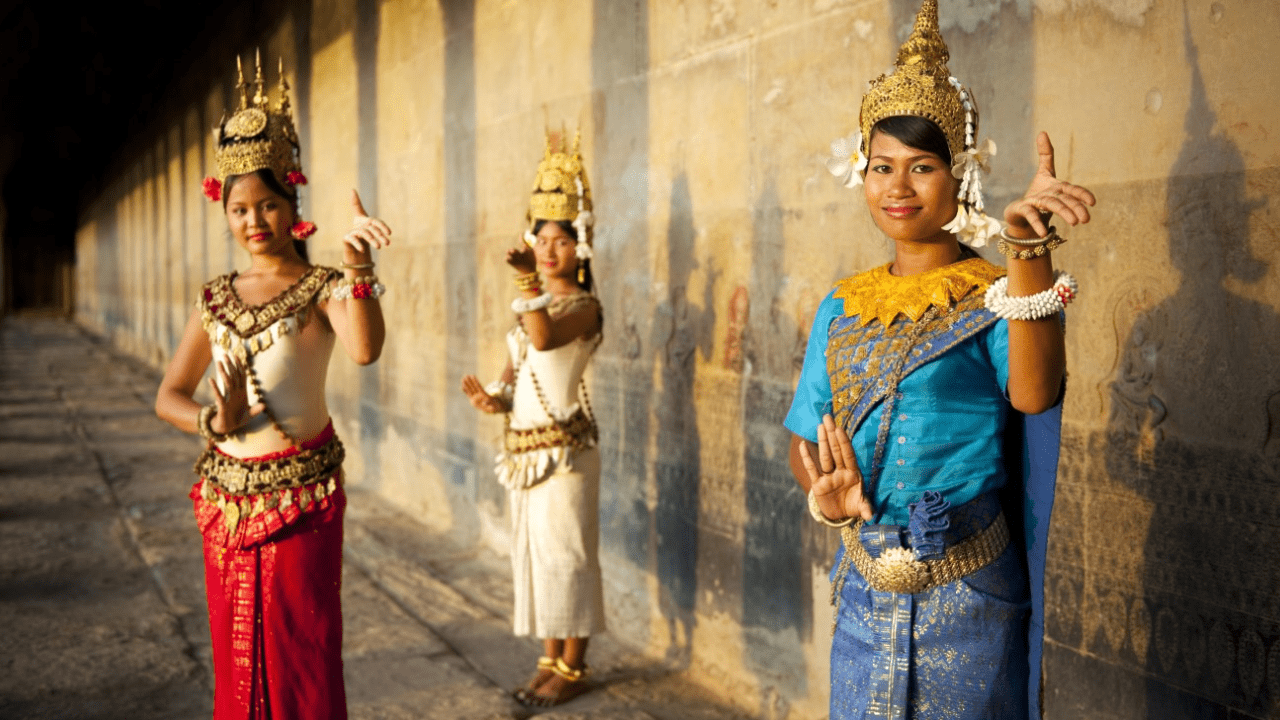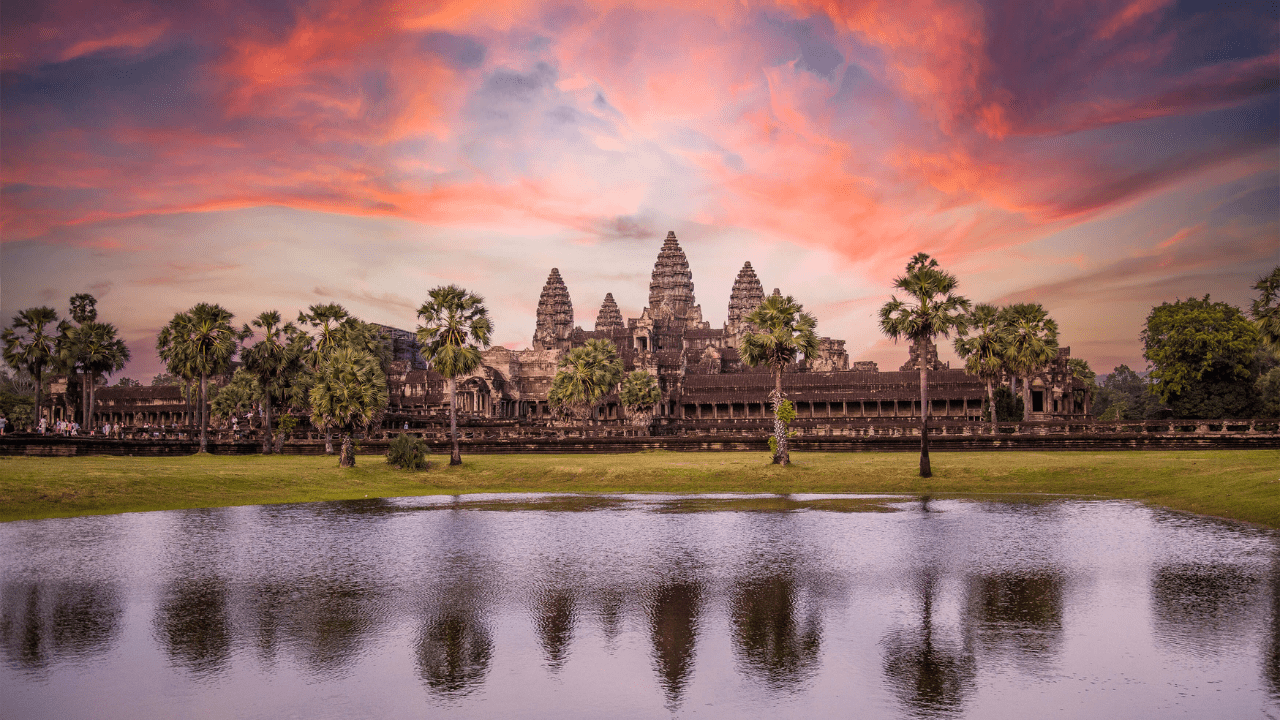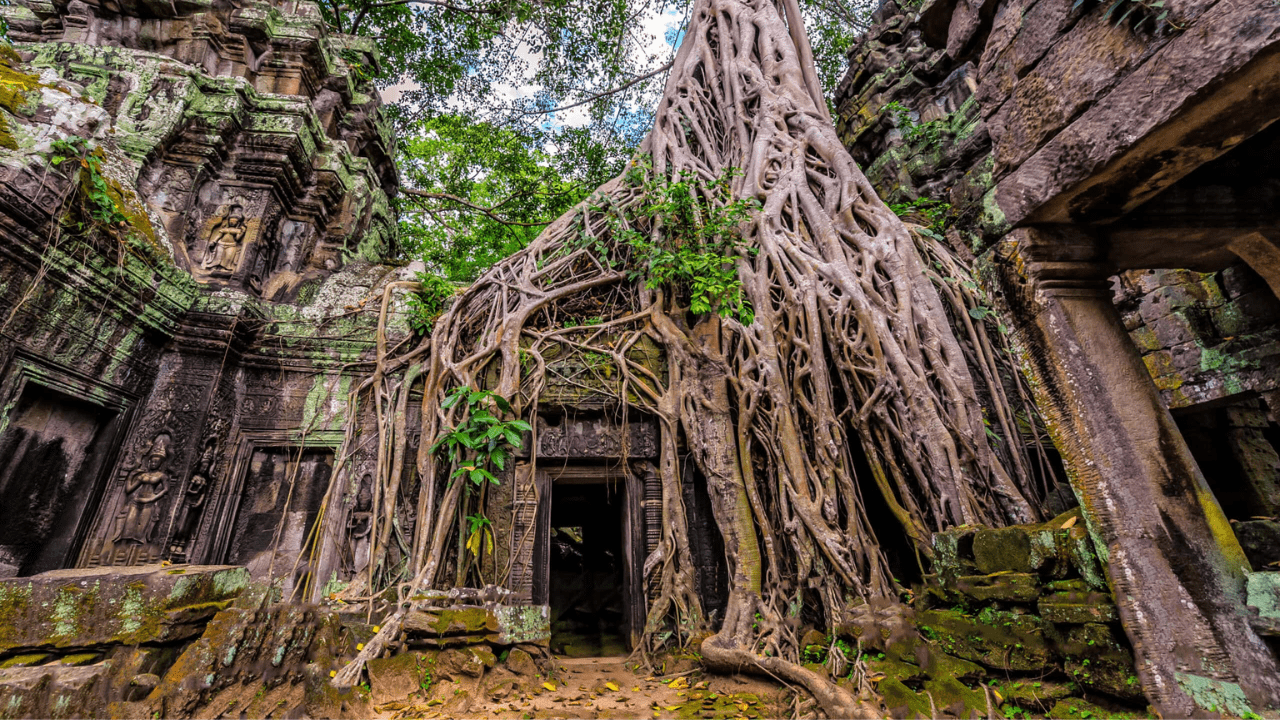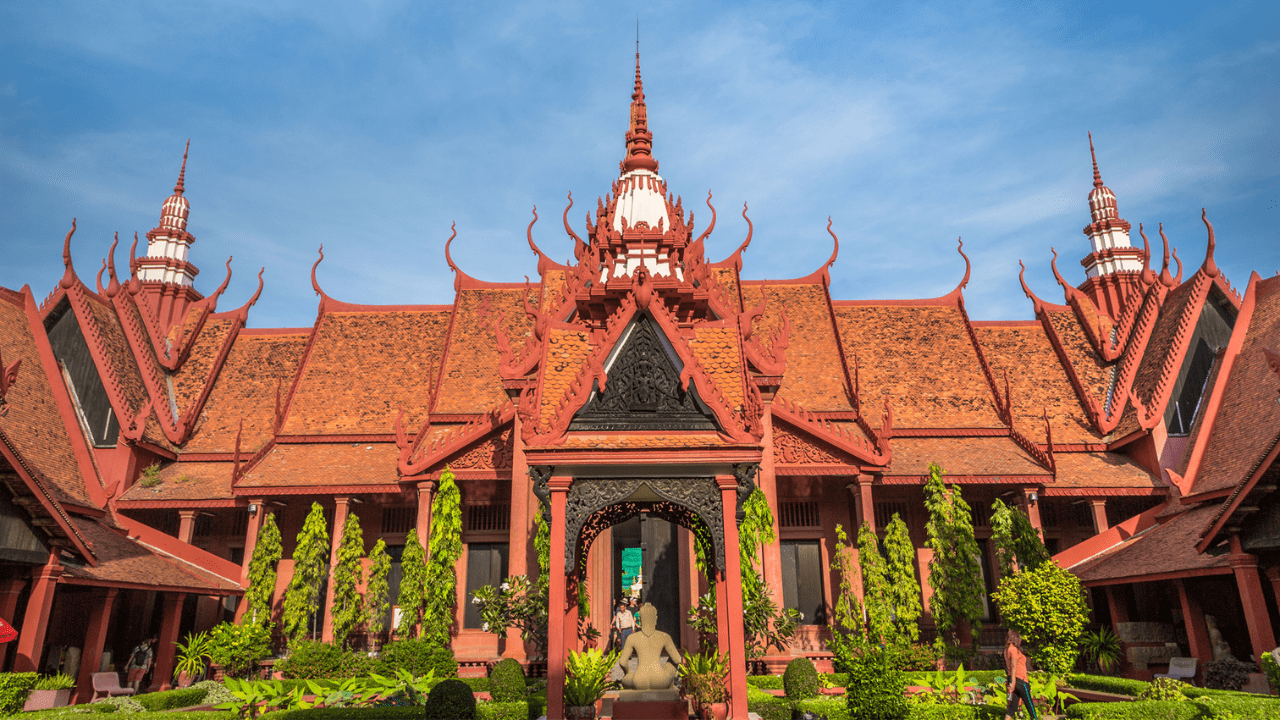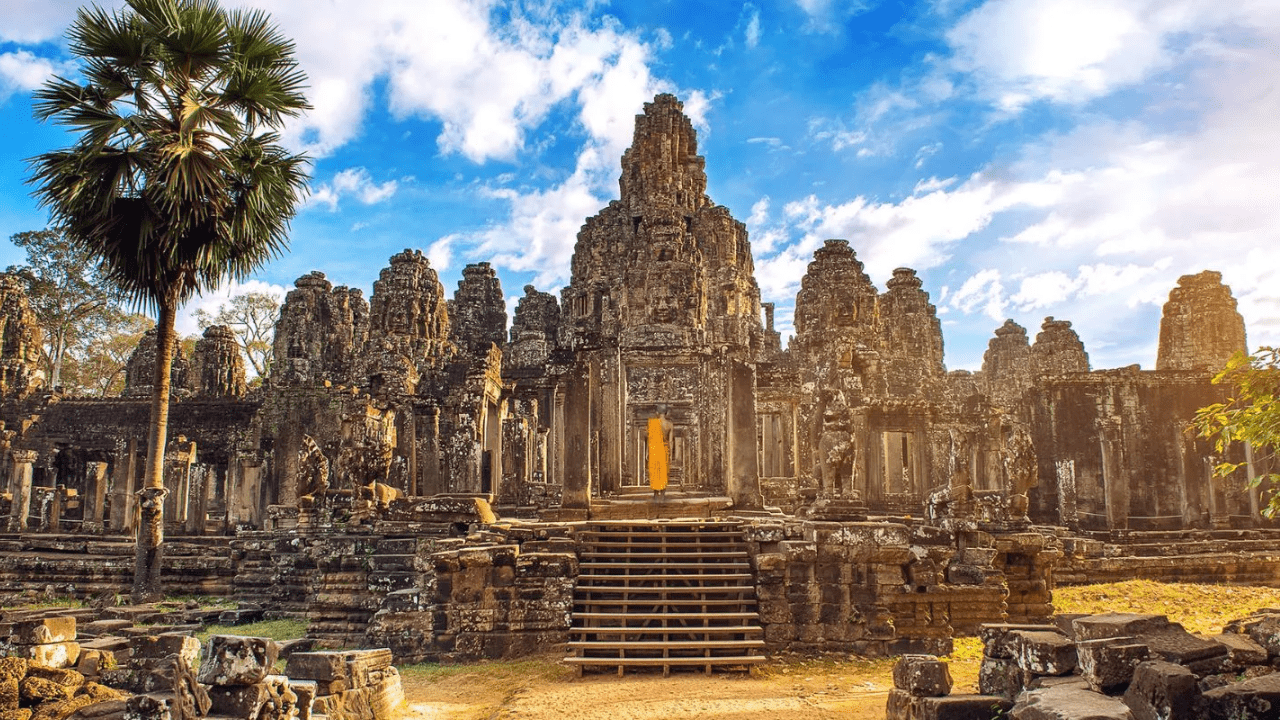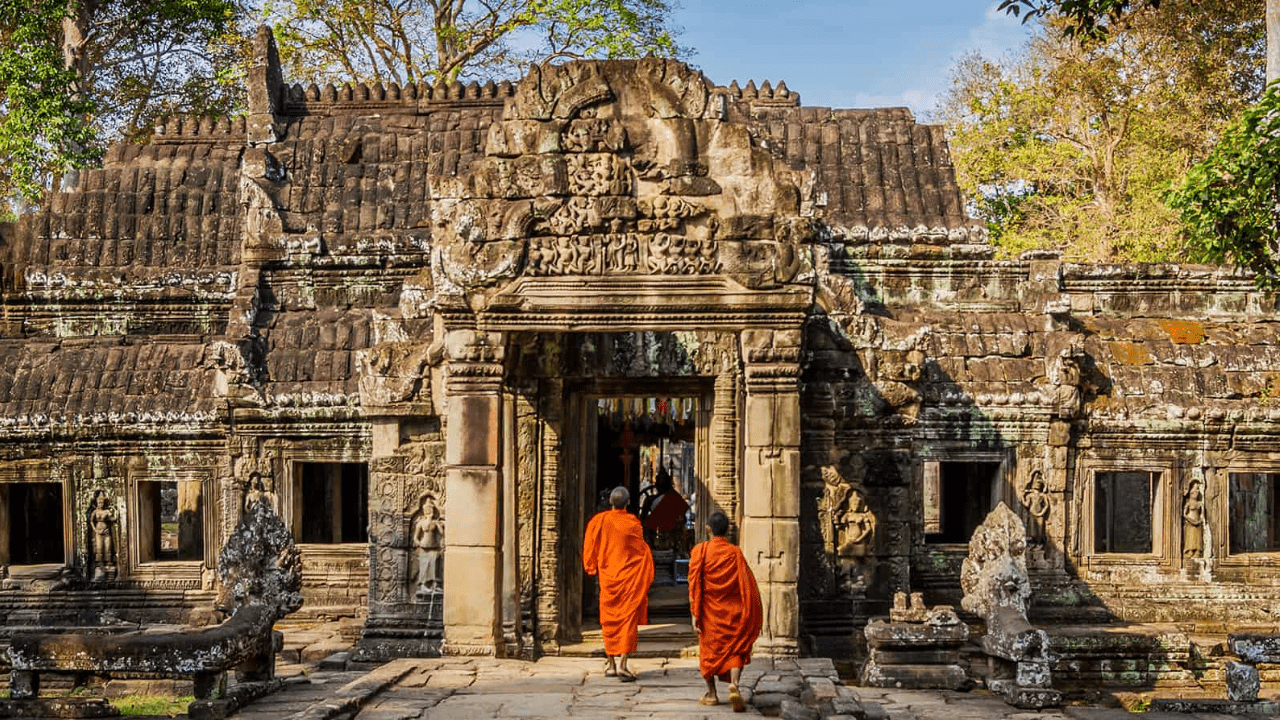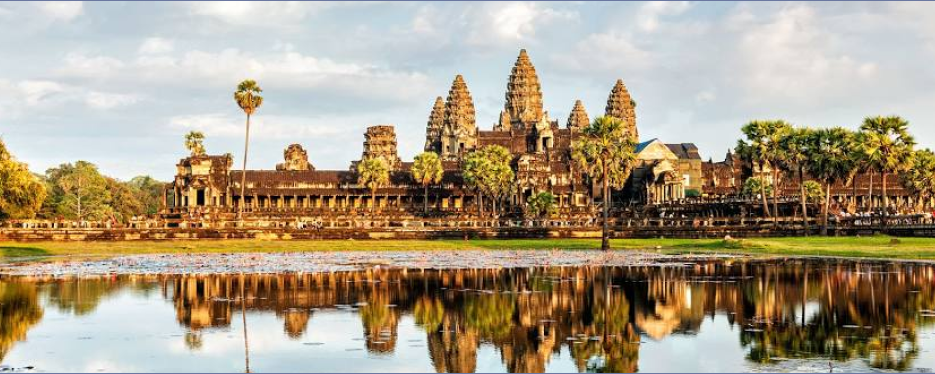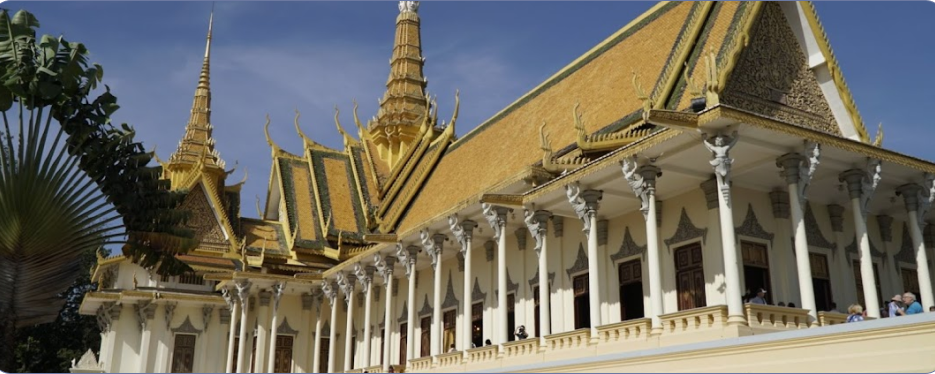
Cambodia, known as the "Land of Ancient Temples," was once home to the powerful Khmer Empire, renowned for its magnificent Hindu and later Buddhist temples. These colossal structures, like Angkor Wat, reflect the grandeur of Khmer architecture and remain an enduring mystery of human achievement. The Mekong River shapes the country’s landscape with a vast web of rivers and the stunning Tonle Sap Lake. Despite its turbulent history, Cambodia’s resilient people have preserved their traditions, welcoming visitors with warmth and a deep sense of cultural pride.
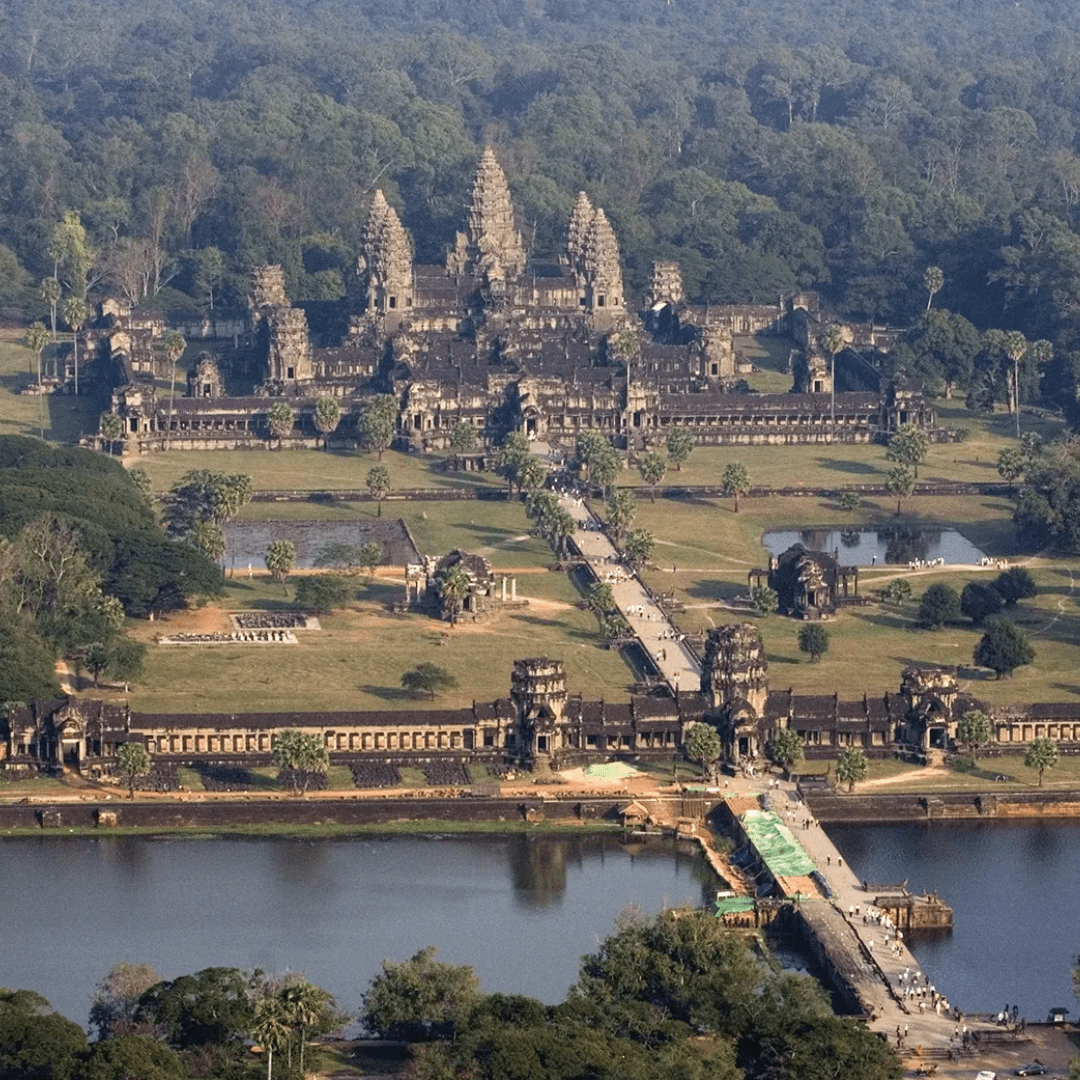
Geography and Landscapes
Cambodia is located in Southeast Asia, bordered by Thailand, Laos, Vietnam, and the Gulf of Thailand. The country is known for its diverse landscapes, including the vast Mekong River, the unique Tonle Sap Lake, and stunning coastal areas. The fertile plains and dense jungles of Cambodia offer rich biodiversity, with the Cardamom and Elephant Mountains adding to its natural beauty.
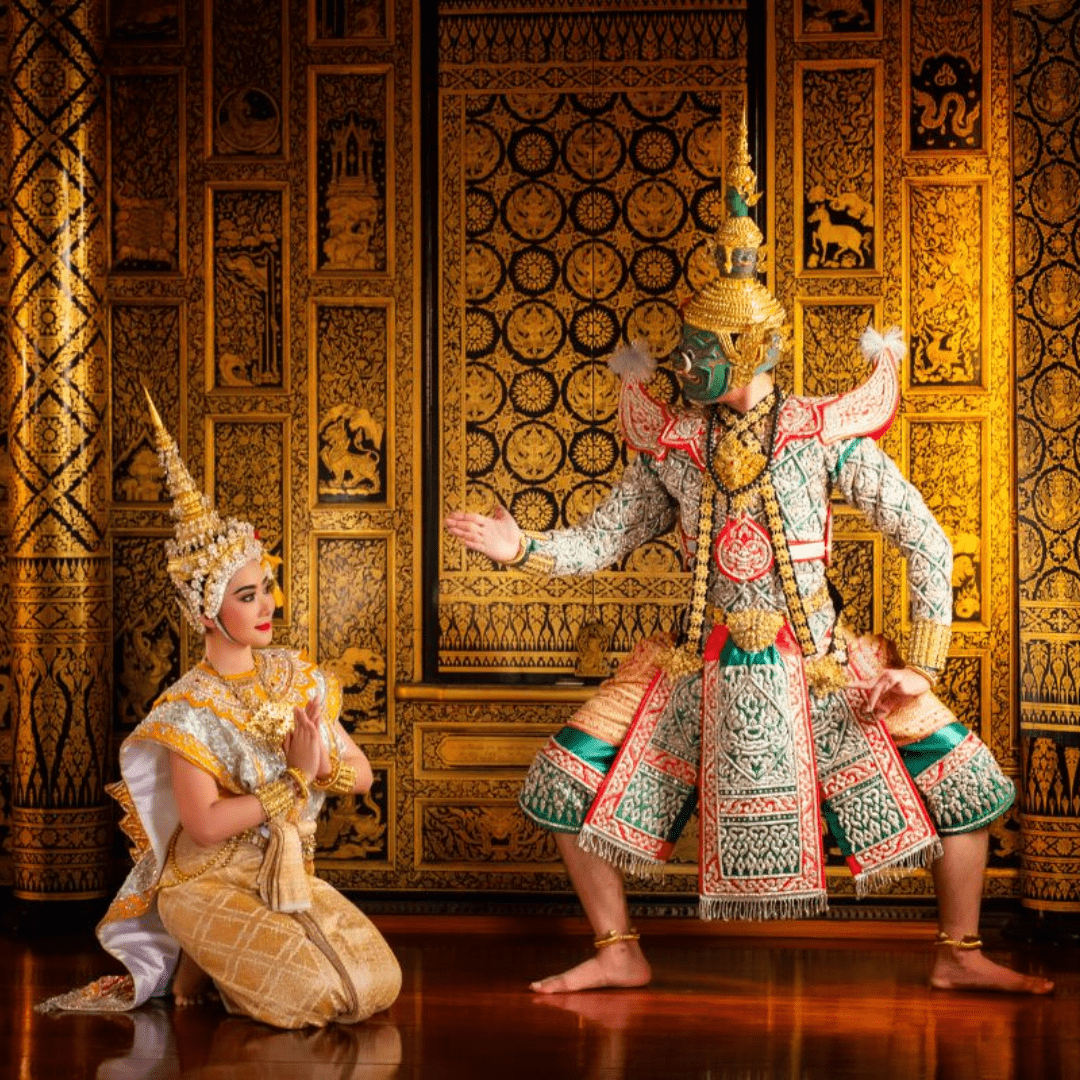
Rich Cultural Heritage
Cambodia boasts a vibrant cultural heritage shaped by the ancient Khmer Empire. Its architectural marvels, like the world-renowned Angkor Wat, reflect a deep connection to Hinduism and Buddhism. The intricate temples, historical relics, and traditional practices illustrate the country’s devotion to spirituality and art, making it a hub for cultural exploration.

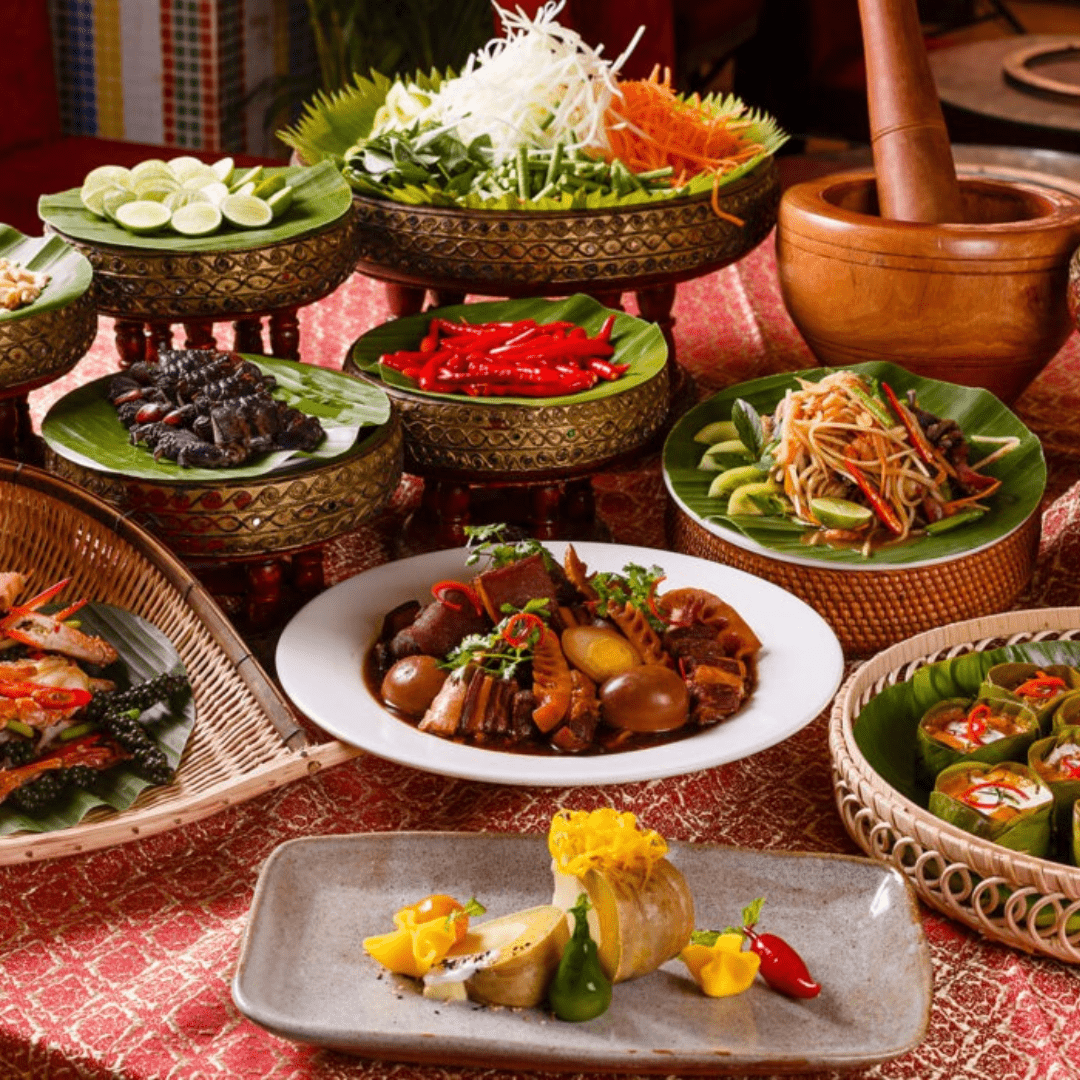
Culinary Delights
Cambodian cuisine is a delightful blend of bold flavors and fresh ingredients. Dishes like amok (coconut fish curry) and kuy teav (noodle soup) reflect the country's use of herbs, spices, and locally sourced produce. The Mekong River provides abundant seafood, while street food markets offer a diverse taste of local delicacies, from grilled meats to rice-based snacks.

Siem Reap, located in northwestern Cambodia, is one of the country’s most iconic cities, drawing thousands of visitors for its breathtaking landscape and cultural significance. The Tonle Sap River, a tributary of the Mekong, flows through, supporting the region’s unique floating villages like Chong Kneas and Kampong Pluk. Siem Reap is also home to Kulen Mountain, famous for its ancient Hindu relics and for providing stone for the majestic Angkor Complex. Angkor, a vast 12th-century temple complex, was once the capital of the Khmer Empire, showcasing the empire’s grandeur and religious devotion. Visitors are captivated by both the peaceful local life and the timeless ruins, such as Angkor Wat, Bayon, Ta Prohm, and many more, spread across the Small and Grand Circuits of Angkor.
Phnom Penh, Cambodia's largest city and capital since the 15th century, lies at the convergence of the Mekong River. When the Khmer Empire moved its capital here from Angkor, Buddhism became prominent, reflected in landmarks like Wat Phnom Temple and the Silver Pagoda. The city also hosts the Royal Palace, symbolizing Cambodia's monarchy. While Phnom Penh showcases beautiful historical attractions, it also bears witness to its dark past at the Killing Fields, commemorating the Khmer Rouge genocide. Today, Phnom Penh thrives with its elegant architecture and bustling markets.
Unlock Your Dream Adventure!
Embark on an unforgettable journey where your dream adventure awaits!
Start Exploring Now!

.png) Vietnam
Vietnam
.png) Cambodia
Cambodia
 Laos
Laos
.png) Myanmar
Myanmar
.png)
